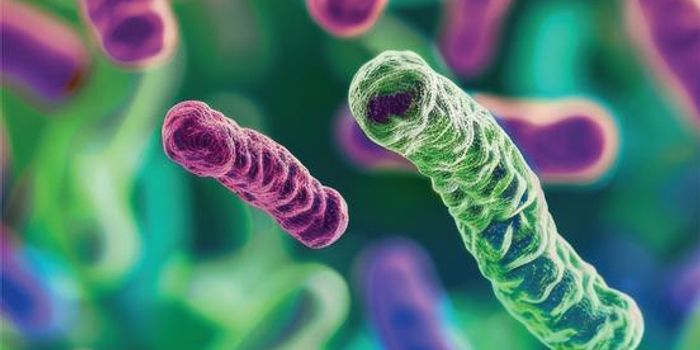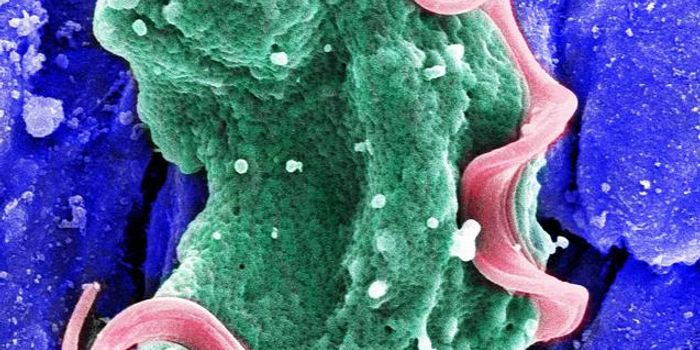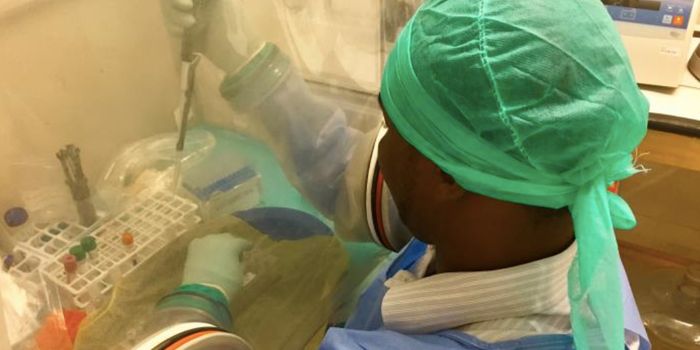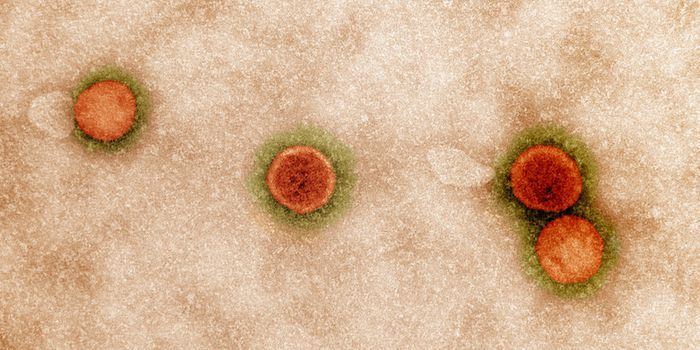Differences in the Bacterial Makeup of Cancerous & Healthy Breast Tissue
Bacteria live on and in us and have been found to exert a major influence on our health. Researchers investigating the bacterial community, or microbiome, in breast tissue have found that healthy and cancerous breast tissue have different microbial compositions. Scientists at the Cleveland Clinic showed that one bacterial species, Methylobacterium, is more prevalent in healthy tissue. This work may help open up new treatment options for women with breast cancer.
The bacterial community that gets the most research attention is the one in our gastrointestinal tract, the gut microbiome. But other parts of the body have their own microbiomes, like the skin. Investigators have suspected that breast tissue carried one too and that their microbiome plays a role in breast cancer. This new data, reported in Oncotarget, is pursuing that hypothesis.
"To my knowledge, this is the first study to examine both breast tissue and distant sites of the body for bacterial differences in breast cancer," noted the co-senior author of this report, Charis Eng, M.D., Ph.D. Eng is chair of Cleveland Clinic's Genomic Medicine Institute and director of the Center for Personalized Genetic Healthcare. "Our hope is to find a biomarker that would help us diagnose breast cancer quickly and easily. In our wildest dreams, we hope we can use microbiomics right before breast cancer forms and then prevent cancer with probiotics or antibiotics."
This research included samples from 78 individuals; 57 of these were patients who underwent a mastectomy to treat invasive carcinoma, while the other 21 represented non-cancer controls and had received and cosmetic breast surgery that was elective. The investigators also examined urine and oral samples to assess the bacterial composition of other, distant sites in the patient.
The researchers showed the difference in the Methylobacterium species, as well as discovering that the urine samples from cancer patients contained higher levels of so-called gram-positive bacteria, including the Staphylococcus and Actinomyces strains. More work will be needed to reveal the influence these bacteria may have on breast cancer.
"If we can target specific pro-cancer bacteria, we may be able to make the environment less hospitable to cancer and enhance existing treatments,” explained co-senior author Stephen Grobymer, M.D., section head of Surgical Oncology and director of Breast Services at Cleveland Clinic. “Larger studies are needed, but this work is a solid first step in better understanding the significant role of bacterial imbalances in breast cancer."
The work is evidence that additional studies attempting to use nanoparticles to target pro-cancer bacteria are important pursuits. In the United States, one in eight women will develop breast cancer in their lifetimes. Dr. Grobmyer talks more about this issue in the video.
Sources: ScienceDaily, Cleveland Clinic, Oncotarget









